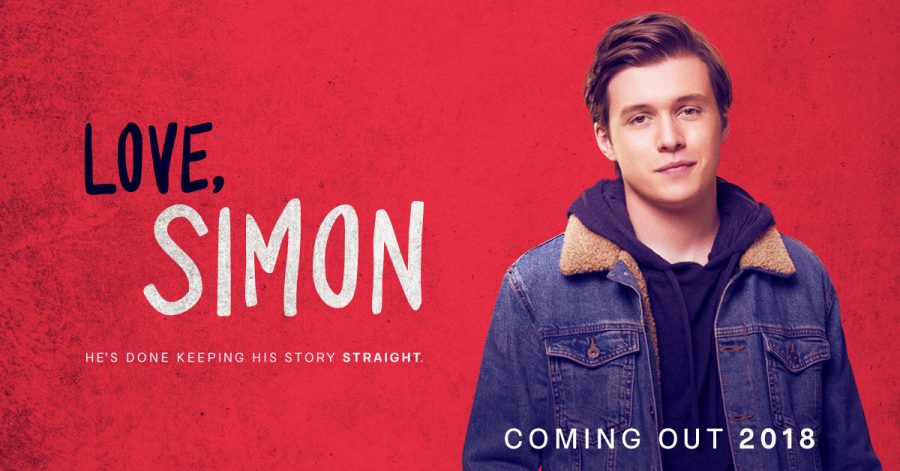Love, Bekah
March 20, 2018
Simon vs. the Homo Sapiens Agenda by Becky Albertalli has undoubtedly been one of the most sensationalized young adult books of the past few months, mimicking the buzz around John Green and Rainbow Rowell’s books in the past. It’s not hard to see why: young adult fiction, and arguably the media at large, has experienced a severe lack of realistic and relatable LGBT+ characters. The main character Simon Spier is a step in the right direction for LGBT+ media, because he’s funny, awkward, and dealing with being in the closet. For quite a few gay kids across the country and the world, this is the first or one of the first times that this story has been played out in a popular book. The book raises questions, such as “why don’t straight people have to come out to their parents?” that connect people of all sexualities to each other in combined theoretical embarrassment of the idea of coming out, and ideas of what constitutes normal or abnormal. Simon’s story gives a good description of what it feels like to come out to your family and friends: all the fear and tension included.
Having come out to my family recently myself, it was reassuring to read something to which I can relate, and exciting to see a love story that was so new and innovative, but representative of myself and my peers.
Nothing is perfect, however, but the book’s biggest fault for me personally isn’t anything that’s controversial. If you’re not one to nitpick when you read then it won’t matter to you, but the flow of the book seems to me like it was written and then chopped apart with an axe. Simple sentences are overused, and even sentence fragments are common. I do understand that this is supposed to describe character and let the reader know that Simon Spier truly is as clueless as he acts. I almost feel, however, like it’s an extension of the same stereotype that people love to apply to teenagers: we’re all simple-minded and self-obsessed. The language of the book implies that Simon fits that bill perfectly, and that’s fine, because sometimes that can be realistic. The point is that Simon’s obliviousness, while endearing at times, seems overdone. By the end of the book, it’s boring.
The movie, titled Love, Simon, was a highly publicized event. With taglines like “he’s done keeping his story straight” and “coming out March 16,” the movie set itself up to be a funny, cheesy story of teenage romance, and it delivered on everything it promised. The movie version of the story seemed more fluid and more complete, like it was more thought through. The movie introduces the audience to the characters more than the book did, which helps viewers relate more to Simon, Nick, Leah, Abby, and even the flawed but loveable antagonist Martin. This helps the audience to cheer for Simon at the end of the movie, rooting for him to accomplish his goals and get the romantic meeting he wants with his penpal Blue.
Overall, Simon Spier’s story is a dramatized representation of being gay in high school today, and is one of the first times that many people have seen that experience in a major movie. While this may be one of the first times this type of story has been shown and such a blockbuster, it hopefully will be far from the last.


